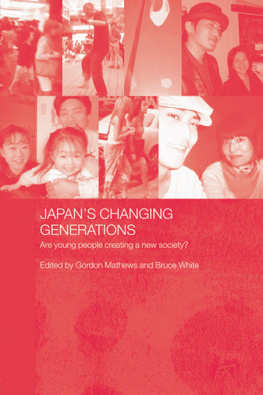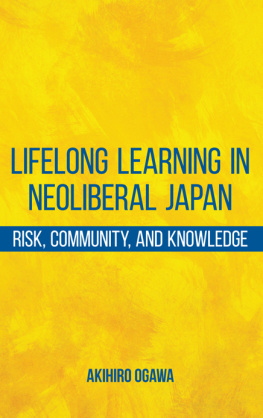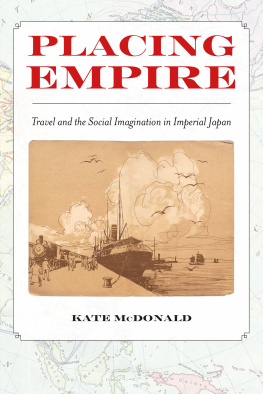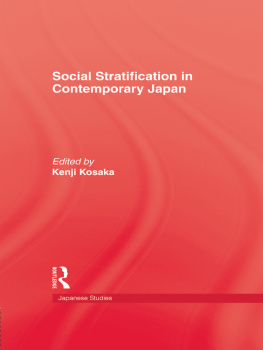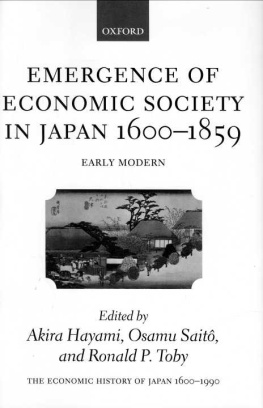Nana Okura Gagnae - Reworking Japan: Changing Men at Work and Play Under Neoliberalism
Here you can read online Nana Okura Gagnae - Reworking Japan: Changing Men at Work and Play Under Neoliberalism full text of the book (entire story) in english for free. Download pdf and epub, get meaning, cover and reviews about this ebook. year: 2020, publisher: ILR Press, genre: Politics. Description of the work, (preface) as well as reviews are available. Best literature library LitArk.com created for fans of good reading and offers a wide selection of genres:
Romance novel
Science fiction
Adventure
Detective
Science
History
Home and family
Prose
Art
Politics
Computer
Non-fiction
Religion
Business
Children
Humor
Choose a favorite category and find really read worthwhile books. Enjoy immersion in the world of imagination, feel the emotions of the characters or learn something new for yourself, make an fascinating discovery.

- Book:Reworking Japan: Changing Men at Work and Play Under Neoliberalism
- Author:
- Publisher:ILR Press
- Genre:
- Year:2020
- Rating:4 / 5
- Favourites:Add to favourites
- Your mark:
- 80
- 1
- 2
- 3
- 4
- 5
Reworking Japan: Changing Men at Work and Play Under Neoliberalism: summary, description and annotation
We offer to read an annotation, description, summary or preface (depends on what the author of the book "Reworking Japan: Changing Men at Work and Play Under Neoliberalism" wrote himself). If you haven't found the necessary information about the book — write in the comments, we will try to find it.
Reworking Japan: Changing Men at Work and Play Under Neoliberalism — read online for free the complete book (whole text) full work
Below is the text of the book, divided by pages. System saving the place of the last page read, allows you to conveniently read the book "Reworking Japan: Changing Men at Work and Play Under Neoliberalism" online for free, without having to search again every time where you left off. Put a bookmark, and you can go to the page where you finished reading at any time.
Font size:
Interval:
Bookmark:
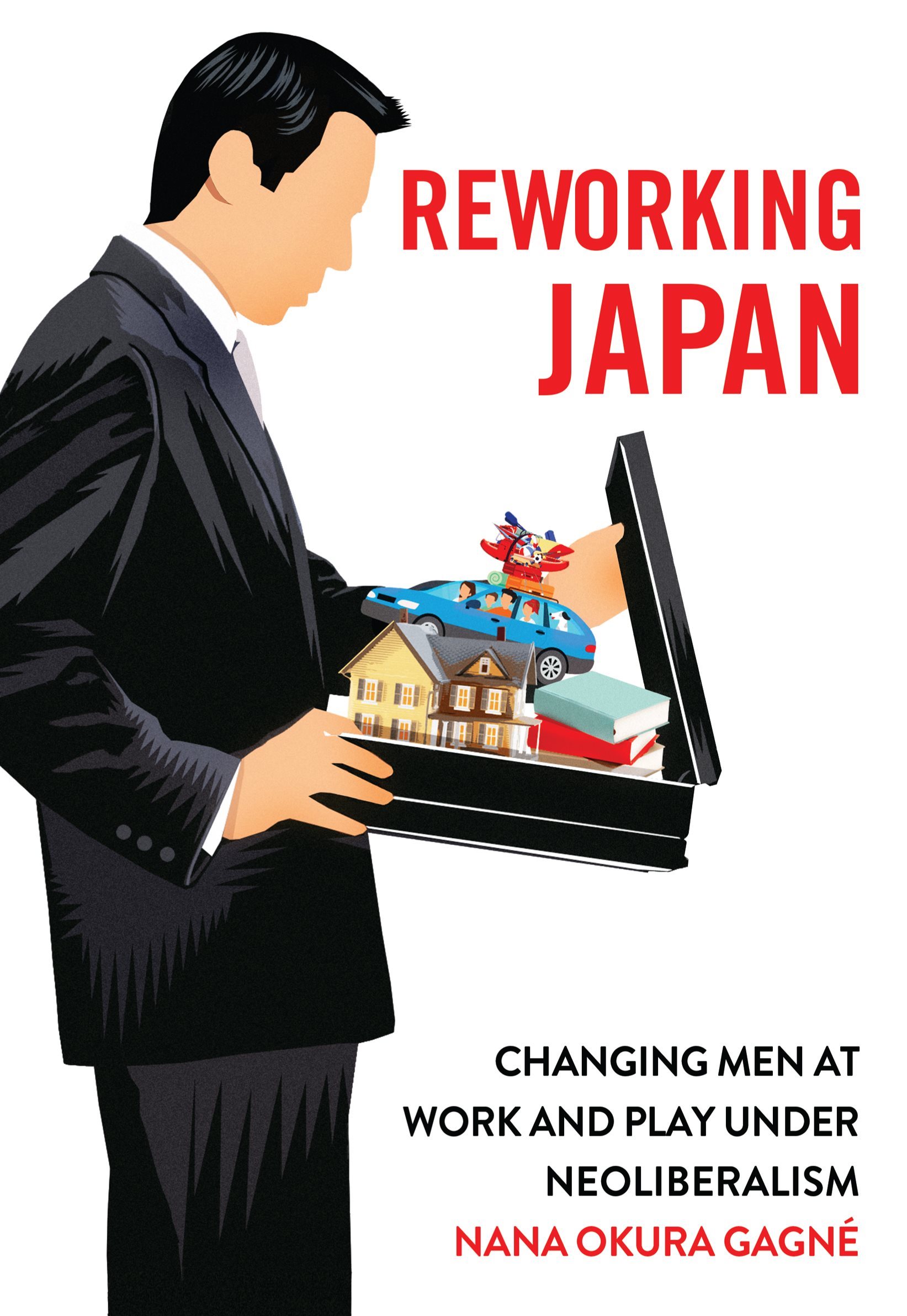
REWORKING JAPAN
Changing Men at Work and Play under Neoliberalism
Nana Okura Gagn
ILR PRESS
AN IMPRINT OF CORNELL UNIVERSITY PRESSITHACA AND LONDON
To Japanese workers, for their passion, challenges, and humor
To Sumie Okura and Kinya Okura
This book is about Japanese men who are working men, family men, aging men, and complex individual men in twenty-first century Japan. While salarymen and hostesses have taught me the importance of their dynamic give-and-take relationship (mochitsu motaretsu no kankei) for enabling and sustaining each other in contemporary Japanese society, not only my fieldwork but also my writing process itself has been supportedoften unilaterallyby many people, sometimes making me feel that I have been on the receiving end of an entirely taking relationship (motaretsu no kankei).
This book would never have been possible without the help of many people who were involved in my research, whose support I can never fully reciprocate. First and foremost, I owe my deepest intellectual debt and sincerest gratitude to William Kelly, for his continuous support with critical and thoughtful feedback and invaluable insights at Yale and beyond, and who challenged me to think and analyze holistically, historically, and theoretically. The seeds of his wisdom continue to bear fruit in my work and have continuously helped me to grow my passion for anthropology.
My path to anthropology is something I can never take for granted. I am tremendously grateful for the positive influences through anthropology and history and the intellectual encouragement that made it possible for me to find my home in anthropology. I wish to thank Linda Angst, Tianshu Pan, Peter Perdue, Jordan Sand, David Sutton, and Yuka Suzuki. Without their positive encouragement, my journey to anthropology would never have begun.
At Yale, I have been intellectually guided by Kamari Clark, William Kelly, Karen Nakamura, Linda-Anne Rebhun, Katherine Rupp, Harold Scheffler, and Helen Siu. During my years at Yale, I have benefited not only from faculty members but also from my colleagues who shared their thoughts, ideas, and support with me. These include Allison Alexy, Anne Aronsson, Dominik Bartmanski, Yao Cheng, Seth Curley, Isaac Gagn, Joseph Hill, Hansun Hsiung, Brenda Kombo, Minhua Ling, Molly Margaretten, Richard Payne, Christian Ratcliff, Ryan Sayre, Colin Smith, Nathaniel Smith, Anglica Torres, Gavin Whitelaw, Jun Zhang, and Tiantian Zheng.
Second, this book would not have been possible without the many Japanese workers who spent time with me and shared their lives, emotions, and thoughts. Their experiences and reflections reveal how our understanding of events and narrations of ourselves is always dynamic and changing, being susceptible to such macro events as the Lehman shock and the March 11, 2011, disaster as well as such micro events as family issues, illness, layoffs, and retirement, which disrupted and redirected the lives of my informants. I am truly grateful that so many of them allowed me to continually followand be a part ofhow they rewrote their own biographies. My greatest debt is owed to Chaoka Kaoru, Fujii Yukiko, Fukuda Ken, Gunji Takeshi, Kaneko Tru, Kat Tomomi, Kawaguchi Kenjir, Komori Akiko and Komori Yichi, Mabe Toshio, Matsushita Akiko, Matsushita Sueo, Murakami Tomoyuki, Nishio Motohide, mori Mikiichiro, numa Mitsuko, Sasaki Akihito, Sasaki Shinobu, Sasajima Iwao, Shida Kazutaka, Tanahashi Seiichi, and Tanaka Kenji. I am also greatly indebted to Asahina Yoshifumi and to the many members of the marathon club, volunteer cleaning group, and hostess clubs.
My fieldwork has been supported through generous grants from the Japan Foundation, Yale University, the Yale MacMillan Center, and the Yale Council on East Asian Studies (CEAS), as well as Waseda University. In Japan, my fieldwork was aided by David Slater, who always pushed me to think critically through the materials and gave me invaluable advice while I was in the field. A Waseda University Asakawa Fellowship made it possible for me to have access to many Japanese archives, and Glenda Roberts provided me with intellectual guidance and unflagging encouragement during my writing. I am also very grateful to Emma Cook and Kate Goldfarb, who read my manuscript and shared their responses.
At the Institute of Social Science (ISS) at The University of Tokyo, I received much intellectual stimulation and guidance from Hiroshi Ishida and Kaoru Sat, who professionalized me in the Japanese academy. I very much enjoyed the ISS young researchers seminar, exchanging ideas and discussing with colleagues, especially It Asei, Sugawara Ikuko, and Taki Hirobumi. My research and writing were further supported by grants from The Chinese University of Hong Kong (CUHK) Faculty of Arts and the Hong Kong University Grants Committee. At CUHK, Ben Ng and Lynne Nakano have supported me and my research greatly. I am also grateful to Jeremy Yellen for providing historical materials. I have been fortunate to be connected with fellow anthropologists at CUHK, Ju-chen Chen, Sealing Cheng, Teresa Kuan, Gordon Mathews, and Huang Yu, who invited me for talks and shared their anthropological insights as well as humor. Moreover, Ann Lui, Negishi Hanako, and Nagaoka Misaki provided essential technical help and meticulous research assistance, which made it possible to put the finishing touches on the book. I am also indebted to Anglica Torres for continuous support as well as practical advice for my writing. Finally, I have greatly benefited from Frances Benson, Jennifer Eastman, and Ellen Murphy from Cornell University Press for their advice and support, Mike Roy for his indexing, and from the excellent copyediting by Matthew Perez and Mary Gendron. I also offer thanks to the anonymous reviewers for their careful reading, critical and constructive comments, and suggestions, which helped make my manuscript considerably stronger.
Lastly, I wish to dedicate this book to all the Japanese workers involved in this book as well as to my family, Sumie and Kinya Okura, who have always had faith in me and encouraged me to pursue my passion. I could not have completed this book without the support, love, and cheer at home from Mona Okura Gagn and Paola Samaniego, as well as Elaine and Thomas Gagn, who always encouraged me from overseas. Last but not least, I am profoundly grateful to Isaac Gagn, my academic and life partner, who helped me on a daily basis and kept me encouraged and enthusiastic to study anthropology, Japan, and everyday life by his constant challenging of any sort of stereotypes and assumptions.
Parts of the introduction, chapter 2, and the conclusion of this book were published in earlier versions and different forms in Neoliberalism at Work: Corporate Reforms, Subjectivity, and Post-Toyotist Affect in Japan, Anthropological Theory, February 6, 2019, http://dx.doi.org/10.1177/1463499618807294; and Correcting Capitalism: Changing Metrics and Meanings of Work among Japanese Employees, Journal of Contemporary Asia 38, no. 1 (2018): 6787, https://doi.org/10.1080/00472336.2017.1381984. Parts of chapter 3 were published in an earlier version in a different form in Feeling like a Man: Managing Gender, Sexuality, and Corporate Life in After-Hours Tokyo, in Cultural Politics of Gender and Sexuality in Contemporary Asia, ed. Tiantian Zheng, 7491 (Honolulu: University of Hawaii Press, 2016); and The Business of Leisure, the Leisure of Business: Rethinking Hegemonic Masculinity through Gendered Service in Tokyo Hostess Clubs,
Font size:
Interval:
Bookmark:
Similar books «Reworking Japan: Changing Men at Work and Play Under Neoliberalism»
Look at similar books to Reworking Japan: Changing Men at Work and Play Under Neoliberalism. We have selected literature similar in name and meaning in the hope of providing readers with more options to find new, interesting, not yet read works.
Discussion, reviews of the book Reworking Japan: Changing Men at Work and Play Under Neoliberalism and just readers' own opinions. Leave your comments, write what you think about the work, its meaning or the main characters. Specify what exactly you liked and what you didn't like, and why you think so.


